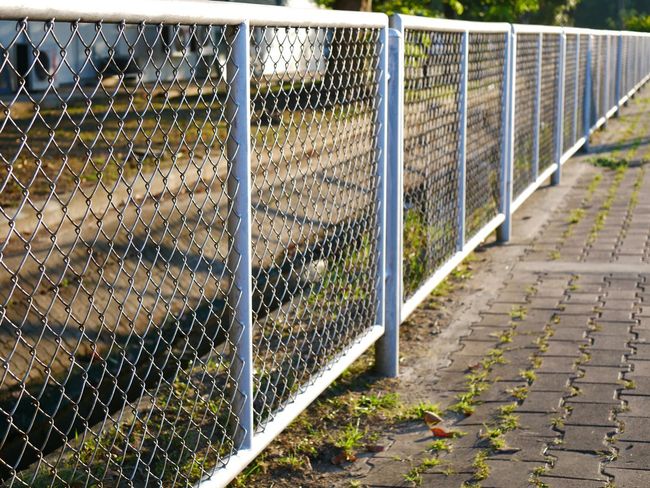Ideas for Building a Coyote-Deterrent Fence
Coyotes are inherently clever and resourceful creatures. You may find it difficult to keep them outside of your property. Unfortunately, coyotes can be a nuisance in suburban areas as well as rural areas. Your solution to their presence will depend on your location and situation. That said, below are some ideas for keeping coyotes from bothering pets or livestock on your property.
Tall Fencing
Coyotes can jump pretty high. Therefore, your first step for coyote-deterrent fencing is to build it tall. At the bare minimum, the fencing needs to be four feet high. A four-foot fence won't be enough on its own, though - you typically have to combine it with another coyote-deterrent product.
If possible, consider building a six-foot fence instead, which is awful high for a coyote to jump. You'd have to check with your HOA, though, because six feet is too tall for some associations. Matters are different if you live in a rural area and you're trying to protect livestock such as sheep. In that situation, consider an eight-foot fence.
Wire Mesh Fencing
Wire mesh fencing consists of a heavy grade of steel wires. Manufacturers weld the wires together to create a high-strength mesh. Property owners typically use wire mesh fencing in place of high-tensile wire fencing. Wire mesh works better because it's stronger, and animals can't work their ways between the wires. It's ideal for large properties, especially in rural areas.
Wire mesh fencing works for deterring coyotes. When choosing the wire mesh, look for a gauge that even a determined coyote can't break through. Likewise, make sure the weave isn't wide enough to give them a foothold. Like dogs, they'll climb a fence if they're determined enough. Additionally, don't top the fence with a wooden rail because they can use that as a foothold.
PVC Privacy Fencing
PVC fencing is relatively new compared to wood. It comes in most of the same styles as wooden fences, including privacy panels that mimic wooden styles. A PVC privacy fence might be a good alternative to wire mesh for residential coyote-deterrent fencing.
PVC is a good material option over wood. For one, coyotes will be unlikely to attempt chewing through it because it will taste unpleasant. Secondly, they'll be unable to climb its smooth surface. They might be able to scratch enough holes into wood to propel themselves up and over.
Privacy fencing is ideal because it prevents coyotes from seeing animals you have in your yard. Likewise, privacy fences are traditionally six to eight feet tall, which is a further deterrent.
Roll Bar Fence Topper
A roll bar fence topper is a good addition for any kind of fence. It consists of two sizes of PVC pipe. Manufactures string the smaller pipe along a heavy-duty wire. They then slide the larger pipe over this assembly to make the roller bar. You or your fence installers attach this roller bar between the posts above the top rail.
The roller ball works how its name suggests - the larger pipe rolls over the smaller pipe inside. So, when a coyote tries to leap over your fence, he'll probably put his paws on the top rail to propel himself over. Instead of the stationary top rail, he'll encounter the roller bar, which moves under his paws. He'll fall back down on his side of the fence.
Roller bars don't look too different from top rails, so they should conform to HOA regulations.
Wire Mesh L-Footer
Finally, coyotes will try to burrow under a fence to get where they want. You can extend a wire mesh fence at least six to eight inches underground as a deterrent to their digging. For other types of fencing, you can have a wire mesh L-footer installed.
Wire mesh L-footers consist of the same heavy-duty mesh as for fencing. They extend a foot into the ground then extend out at a 90-degree angle. The resultant foot acts as a further barrier to coyotes trying to dig under your fence. You'll extend the foot outward, where the coyotes will be digging.
Contact Gulf Coast Fence Co. for help constructing your coyote-deterrent fence.
Browse Our Website
contact information
Address: 5603 Veterans Blvd. Pascagoula, MS 39581
Phone: 228-769-2677
Fax: 228-896-7764
Email: gulfcoastfenceco@yahoo.com
Business Hours:
- Mon - Fri
- -
- Sat - Sun
- Closed













